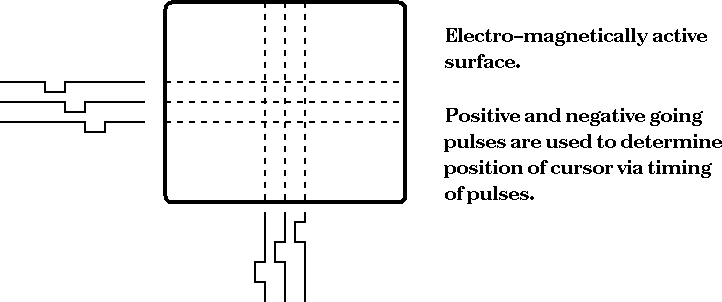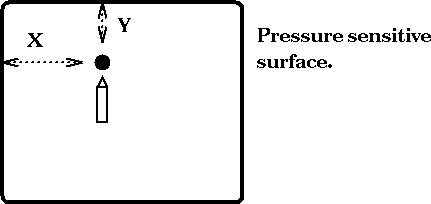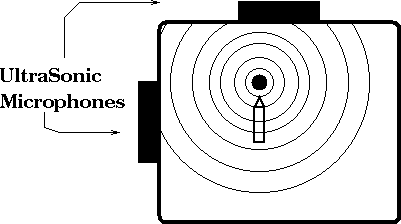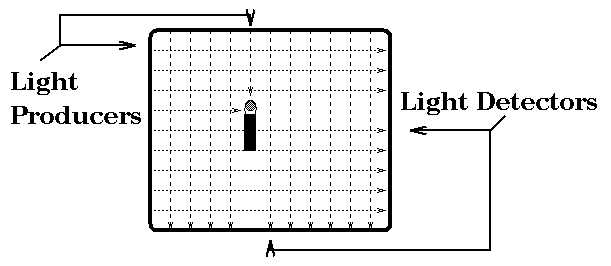 3.10. Digitisers.
3.10. Digitisers.  3.10. Digitisers.
3.10. Digitisers. A digitiser accurately measures the position of a point
within a 2-D area and encodes the measurement into x,y
coordinates. It is normally a flat square surface 1 foot square (
and upwards to 4ft x 5ft). The positioning device is either a pen
like object or a flat cursor box or mouse with a cross hair. The
cursor box will have one or more buttons for selection. By moving
the cursor box or mouse to the appropriate places, the cursor on
the graphics screen can be made to follow.

e.g. Picture could be put on the flat surface and its shape traced out
-> information stored in computer and graphed on screen.
(See Figure 3.14.)

Flat surface is electro magnetically active and pen or
cursor box detects where it is via timing signals.

Fig. 3.11 : An Electro Magnetic digitiser

May be 10,000 * 10,000 lines (criss crossed) on digitising area.
If 10" x 10"
10
-> ----- = 0.001" resolution
10000
Simplistic view: knows which pulse in x direction and which in y
direction -> x,y coordinate.
Picks up pulse and uses that to work out which x,y lines were pulsed.
It would not be practical to have 10,000 x 10,000 crossed lines since
this would be 20,000 wires in total!
A microprocessor is used to determine the coordinates from information
supplied from a fewer number of crossed lines.

Flat surface is sensitive and pen or finger is detected.

Fig. 3.12 : A Touch sensitive digitiser

Use sharp pen or stylus to pin point x, y coordinate wanted.
Pressure causes two resistive surfaces to meet -> electrical current
flow depends on resistance -> depends on x,y coordinate.

Flat surface is acoustically sensitive.

Fig. 3.13 : A Sonic digitiser

: Sound impulses caused by pen are picked up by two
microphones to determine x,y coordinate.
Note: No hands in way.

Low resolution (finger size) grid.

Fig. 3.15 : Light Detector Digitiser

Matrix of light source and light detectors.
Used mainly for VDU for pointing operations.
Place finger on screen -> No light -> position in terms
of rows and columns.
Very low resolution.













